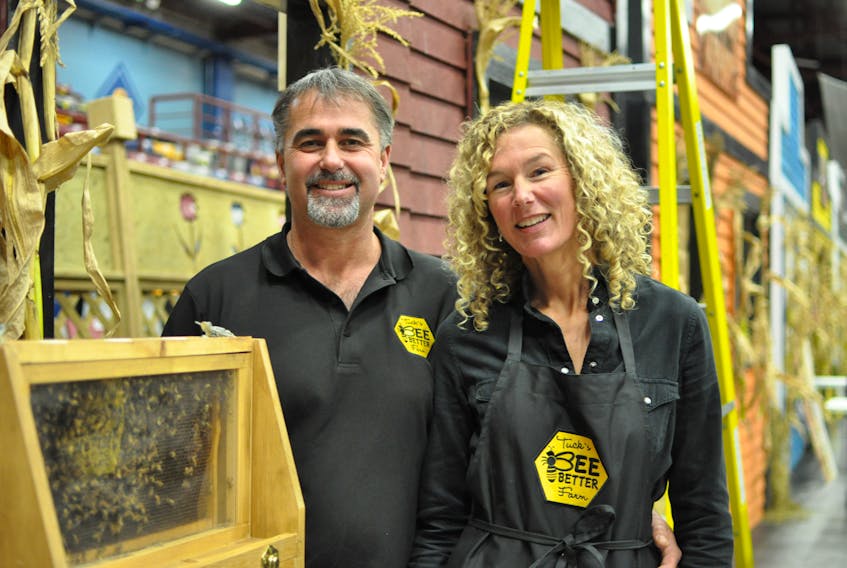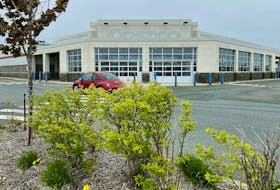Trevor Tulk grew up in a hunter-gatherer type of family.
“We grew our own vegetables, raised our own animals.”
It’s a lifestyle that appealed to him and so it’s no surprise that he started his own farm.
However, it’s not your typical farm.
It’s a bee farm.
Tulk’s Bee Better Farm is located in Grand Falls-Windsor, but Tulk and his partner Kim Thompson are in Corner Brook this weekend at the Agriculture Expo at the Corner Brook Civic Centre.
Tulk said he started the farm because he wanted to do something to give back.
“Something to have a positive impact. Because there’s nothing more positive, more of a worldwide impact than bees,” he said.
Newfoundland is one of few places that is disease free where bees are thriving.
So, he was enticed by the opportunity here, or rather the responsibility of growing bees, and of being able to export products to the rest of the world.
But he didn’t go into the business lightly.
He started out by working with bee keepers in other countries in the winter to see if it was something he’d enjoy doing.
“You have to see if you can handle being stung on a daily basis. If that’s something you’re really willing to put up with.”
He also worked with commercial bee keepers at several operations across the country and studied in Costa Rica and Tasmania.
He has beehives all throughout the central area and in Woody Point. His goal is to get up to around 600 colonies. Each colony can average 20,000-100,000 bees.
The biggest challenge he has is the weather. He lost more bees this past June than he did all winter.
His west coast bees actually do quite well in the winter. With more snow-coverage the hibernating bees are protected from the wind and extreme cold.
He works with local berry farmers to provide pollination services for raspberries, blueberries, cranberries and strawberries.
Sometimes part of the payment comes in berries and that’s added to the honey produced by his bees to make other products like honey cranberry sauce and honey cranberry juice.
“It’s partnering with local farmers so we can produce products of high quality, made right here in Newfoundland,” he said.
“We’re going to export it instead of import it.”









